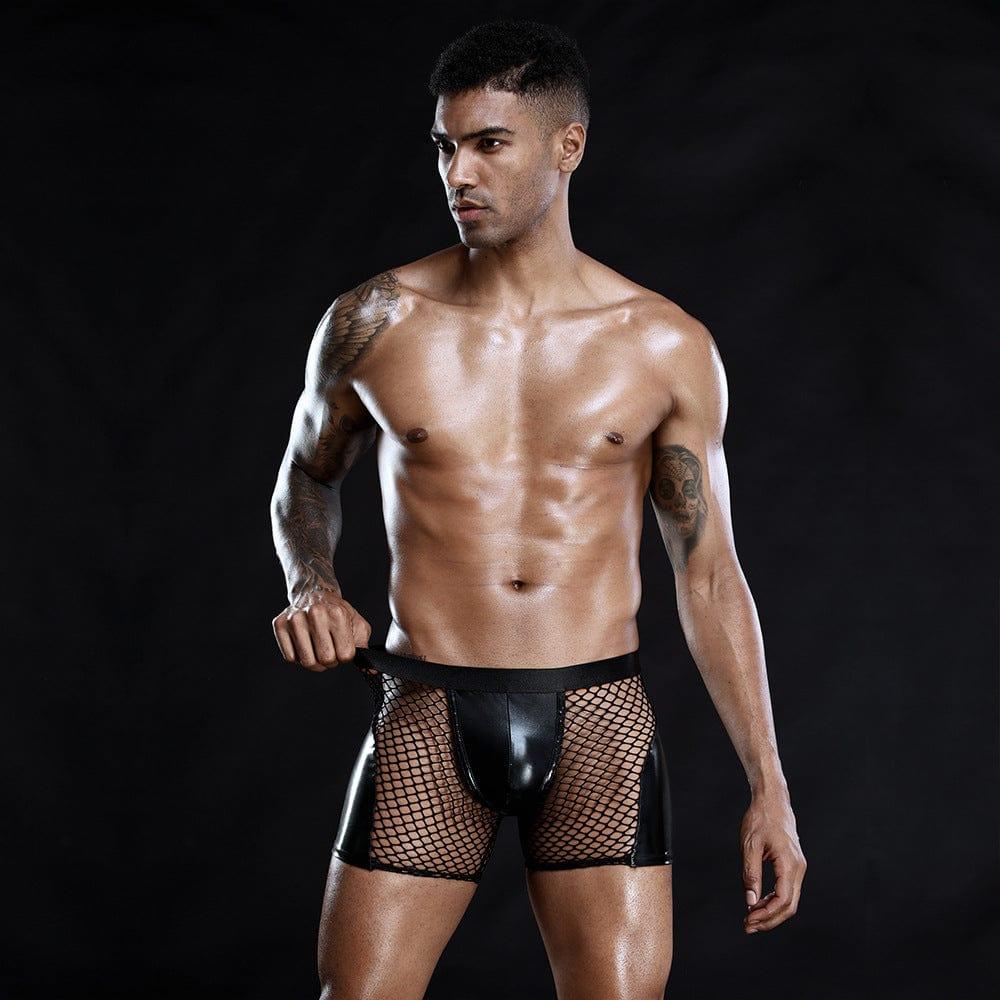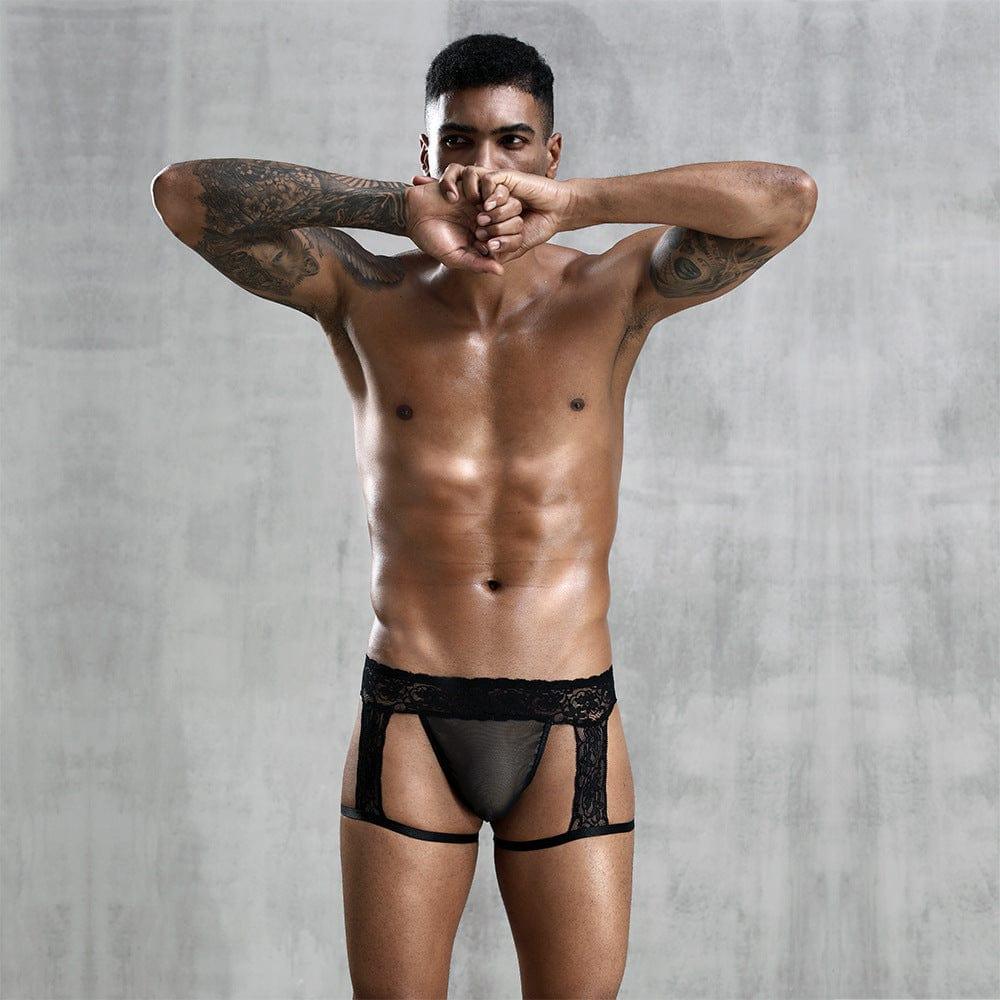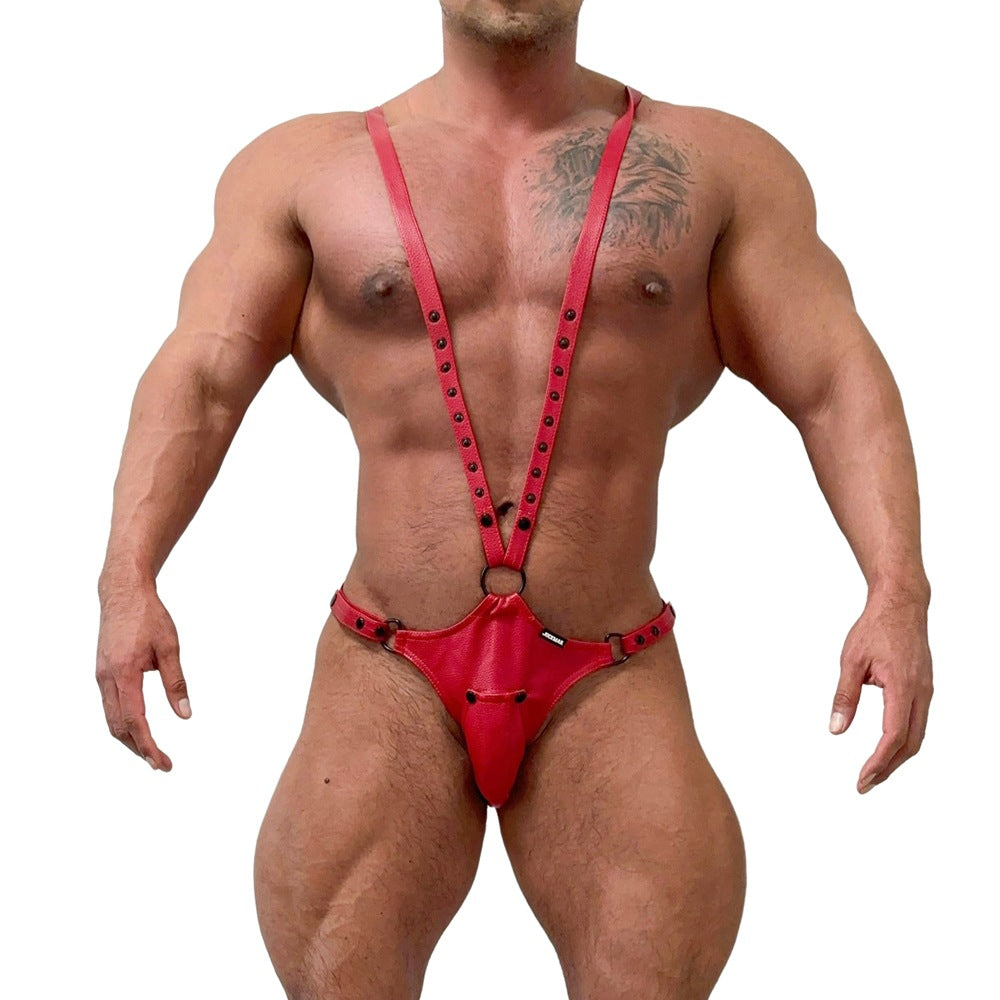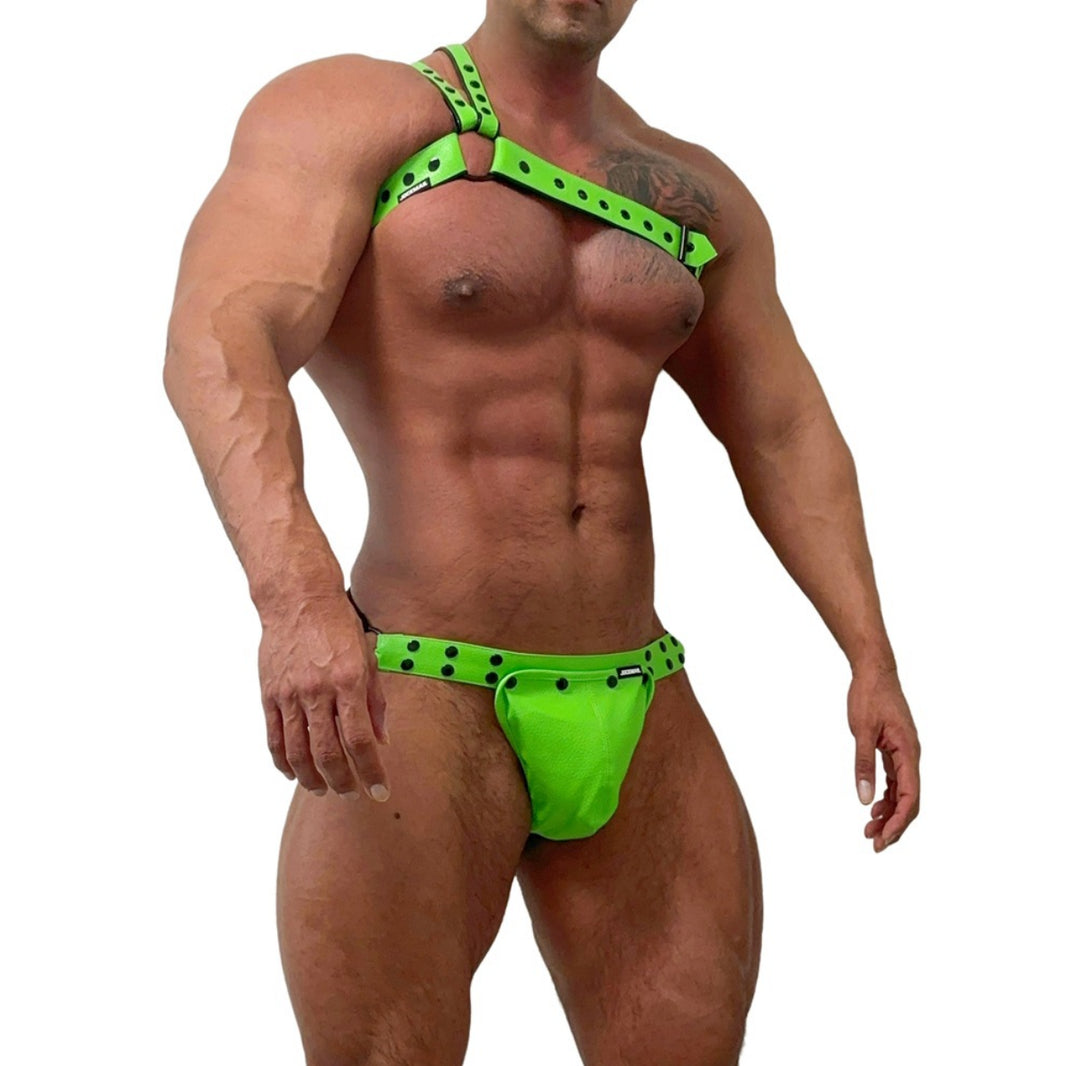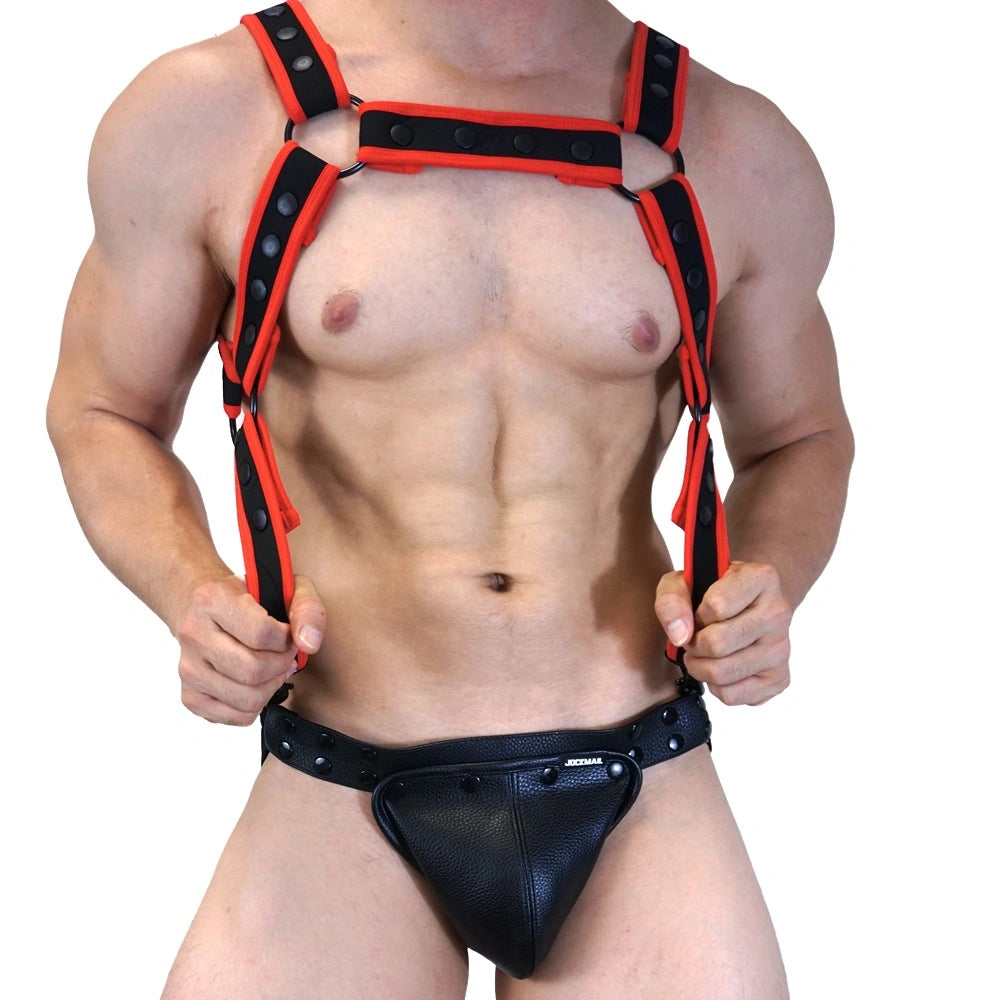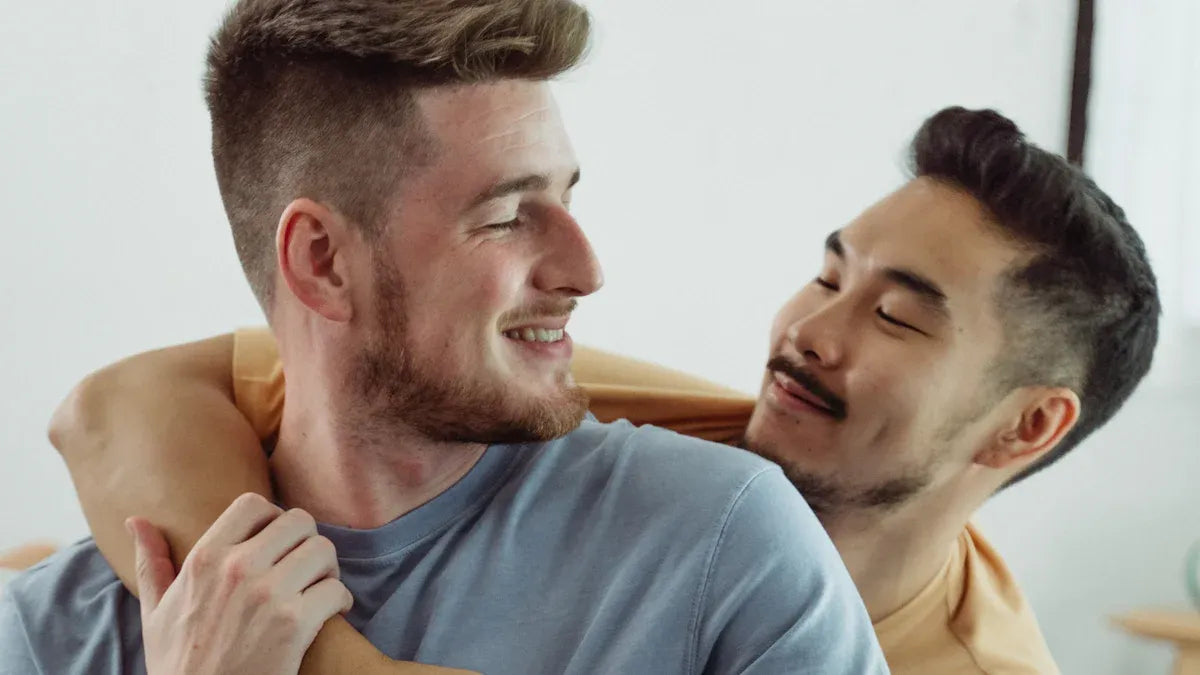
How to choose gay underwear?
You might wonder, how do gay men get along with each other? The answer is simple: many gay men develop strong, genuine friendships that stand the test of time. However, sometimes feelings of attraction or competition can create challenges between gay friends. Studies show that sexual interest and rivalry can occasionally undermine trust and honesty in these friendships. Some gay men may view each other as potential partners or rivals, which can lead to conflicts. But by communicating openly, setting clear boundaries, and enjoying activities together, you can build a friendship that feels safe and supportive. Strong friendships help you feel a sense of belonging and reduce feelings of loneliness. If you stay open and make an effort to connect, you can find a friend who truly understands you.
Key Takeaways
-
Gay men build strong friendships with kindness and honest talks. They set clear boundaries to help each other. Attraction and competition can make friendships hard sometimes. Talking openly helps friends trust each other. Doing group activities and sharing hobbies helps people meet friends. It also helps them feel accepted. Using community symbols like the rainbow flag helps people connect. It makes them feel like they belong. Friendships with honesty, respect, and support make safe spaces. These safe spaces help people feel less lonely.
How do gay men get along with each other?
Friendship Challenges
Making friends in the gay community can be hard sometimes. Many gay men meet in places like bars or dating apps. These places often mix romance and friendship. It can be confusing to know if someone wants to be your friend or more. Sometimes, your romantic partner is also your best friend. But it is good to have other friends too. If you only depend on romance for support, you might miss out on what friends can give.
Here are some common challenges you might face:
-
Attraction can make friendships tricky. You might like a friend, or worry they want more because you are both gay.
-
If one person likes the other but it is not returned, the friendship can feel weak. Setting rules early can help stop problems.
-
Parties and apps often focus on dating, not friendship. This makes it harder to find friends who just want to hang out.
-
Some gay men find it easier to be friends with bisexual or straight women. This can help avoid romantic mix-ups.
Online groups and dating apps often push romance or hookups. Most apps use swiping and quick choices based on looks. This can make it seem like friendship is not important. Some new apps add group chats and tags for interests. These help people find friends and build a chosen family. This is helpful if you live where there are not many LGBTQ+ spaces.
Gay men often share tough experiences like discrimination or stress. You might become close with friends who know what it feels like to be left out. This can make your friendships stronger. But sometimes it can also make you feel alone or sad. If you are a person of color, you might face extra problems in gay spaces. You can find both support and discrimination there.
Tip: If you feel nervous in social places, try joining LGBTQ+ groups or clubs. You can practice talking to people in easy settings. Be honest about what you want with new friends.
Building Connections
You can make strong friendships by being kind, listening, and accepting others. When you are kind, people feel safe and welcome. Listening means paying attention and showing you care. If you listen to understand, your friend feels important.
-
Listening well helps you build trust. When you focus on your friend’s words and feelings, you make it safe to talk.
-
Using “I” statements and checking in often can make your friendship stronger. This shows respect and care for each other.
-
Not judging your friends is important. If you accept them as they are, your friendship can last. Studies show that empathy and kindness help people in the gay community support each other.
Age can change how gay men get along. Older gay men often make “families of choice.” They count on friends for support and fun. Middle-aged men may spend less time at bars and more time with friends at home. These changes help you find support, even if your family is not close.
Here’s a table showing how shared experiences can affect bonding among gay men:
|
Aspect |
Description |
Impact on Bonding Among Gay Men |
|---|---|---|
|
Minority Stress |
Facing stigma and discrimination |
Can make people closer, but can also cause loneliness |
|
Intersectionality |
Race and sexuality combine |
POC men may have extra problems in gay spaces |
|
Age |
Older men form chosen families |
Support networks get stronger as people age |
If you want to make new friends, try these ideas:
-
Join different LGBTQ+ groups or activities to meet new people.
-
Be honest about what you want, like friendship or more.
-
If you feel nervous, try therapy or coaching to build confidence.
-
Practice talking to people in relaxed places.
-
Plan hangouts or outings to meet others.
-
Be patient. Good friendships take time to grow.
You can get along with other gay men by being kind, listening, and accepting. If you set clear rules and talk openly, your friendships can last. Shared experiences and support help you feel close and valued. When you wonder how gay men get along, remember that respect, empathy, and wanting to connect are the keys.
Boundaries and Communication
Setting Boundaries
Setting boundaries helps you build trust and respect in any relationship. When you meet new friends in the gay community, you might feel unsure about what each person wants. Some people look for romance, while others want friendship. You can avoid confusion by talking about your needs early. If you feel attracted to a friend, it is okay to share your feelings. You do not have to act on every feeling. You can agree to stay friends and support each other.
Here are some ways to set clear boundaries:
-
Tell your friend what you want from the relationship. Be honest if you only want friendship.
-
Respect your friend’s wishes. If they want space, give it to them.
-
Check in with each other. Ask if anything feels uncomfortable.
-
Use light, friendly touch, like a hug or pat on the shoulder, only if both of you feel okay with it.
-
Make eye contact and listen. This shows you care and helps you both feel safe.
Tip: Boundaries are not rules to keep people out. They help you feel safe and happy in your relationships.
Open Conversations
Open conversations help you manage attraction and keep your friendships strong. You might feel nervous talking about your feelings, but honest talks make your relationship better. When you talk openly, you show that you care about your friend’s feelings too.
You can use these steps to keep your relationship healthy:
1. Create a safe space where both of you feel accepted. 2. Match your friend’s way of talking and listening. This helps you understand each other. 3. Use humor to break the ice and make things less tense. 4. Trust your gut. Be yourself instead of using fake lines or tricks.
When you have a problem, talk about it early. Open communication lets you share your feelings and solve problems before they get big. You can check in with your friend by texting or calling. This keeps your relationship strong, even if you do not see each other every day.
Gay men often talk more and share deeper feelings with each other. This helps you build trust and makes it easier to handle conflicts. If you listen and show empathy, you can fix problems and keep your friendship strong. Open talks are key to any healthy relationship, especially in lgbtq relationships.
Shared Activities for Gay Men
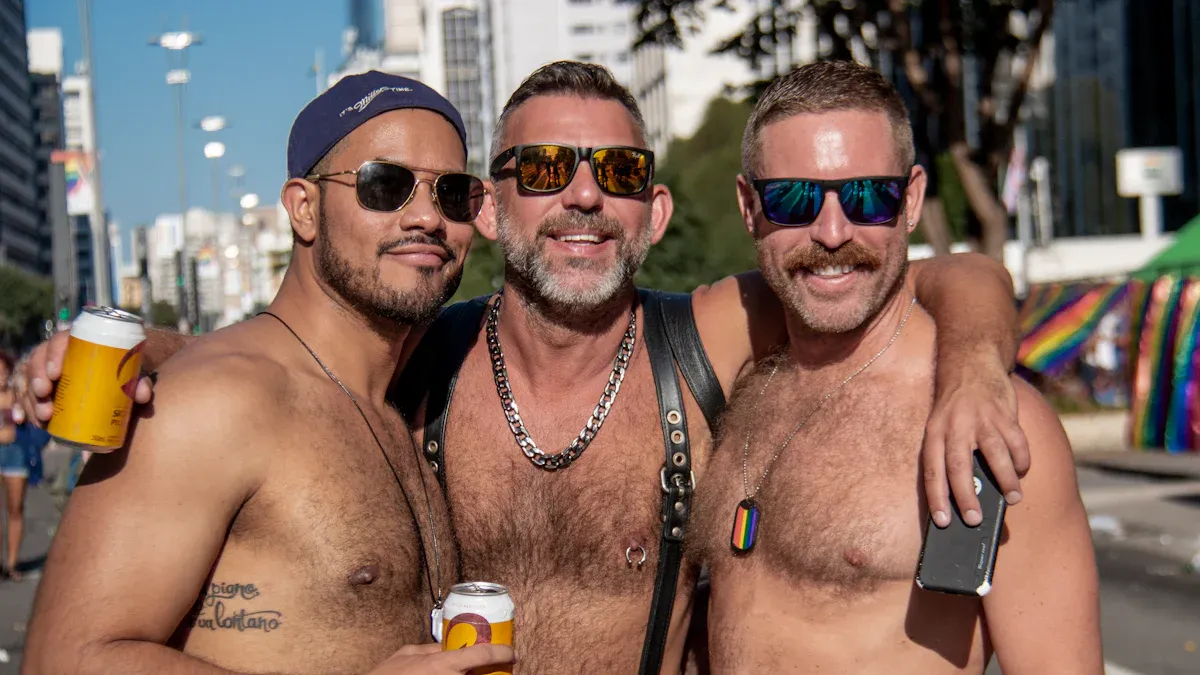
Social Settings
You can make new friends by joining group activities that match your interests. Many people find it easier to connect when they share something they enjoy. You might join a sports team, go to a book club, or try a cooking class. These places let you meet others in a relaxed way. When you play soccer or join a theater group, you focus on having fun together. This helps you build friendships that are not just about being gay.
-
Group activities like sports, art, and social outings help you feel like you belong.
-
Shared interests give you something to talk about and do together.
-
You can meet people who understand you, but your friendship grows from what you both like to do.
-
These groups often give you a safe space where you feel accepted and valued.
-
You can learn new skills and encourage each other, which makes your bond stronger.
If you feel nervous about joining, start with online groups or apps. Many people use Facebook, Reddit, or Discord to find others who want to make friends. You can also check out local LGBTQ+ centers or Pride events. These places welcome everyone and help you find your crowd.
Bonding Experiences
Spending time together helps you and your friends grow closer. You can invite friends to your home for a movie night or a meal. Sometimes, just hanging out in a personal space makes your friendship deeper. You can also plan outings, like going to a museum or hiking in the park. Both in-person and online hangouts matter. Virtual game nights or group chats keep you connected, even if you live far apart.
Here are some ways to build strong friendships:
-
Join a local sports league or art group.
-
Volunteer at a community center or Pride event.
-
Try new things together, like camping or cooking.
-
Share your feelings and offer emotional support when your friends need it.
-
Celebrate each other’s wins and help out during tough times.
Tip: Friendships grow when you show up, listen, and share your real self. You do not have to do big things—small moments matter, too.
When you join group activities, you find friends who accept you and give you support. These shared experiences help you feel less alone and more connected.
Symbols and Community
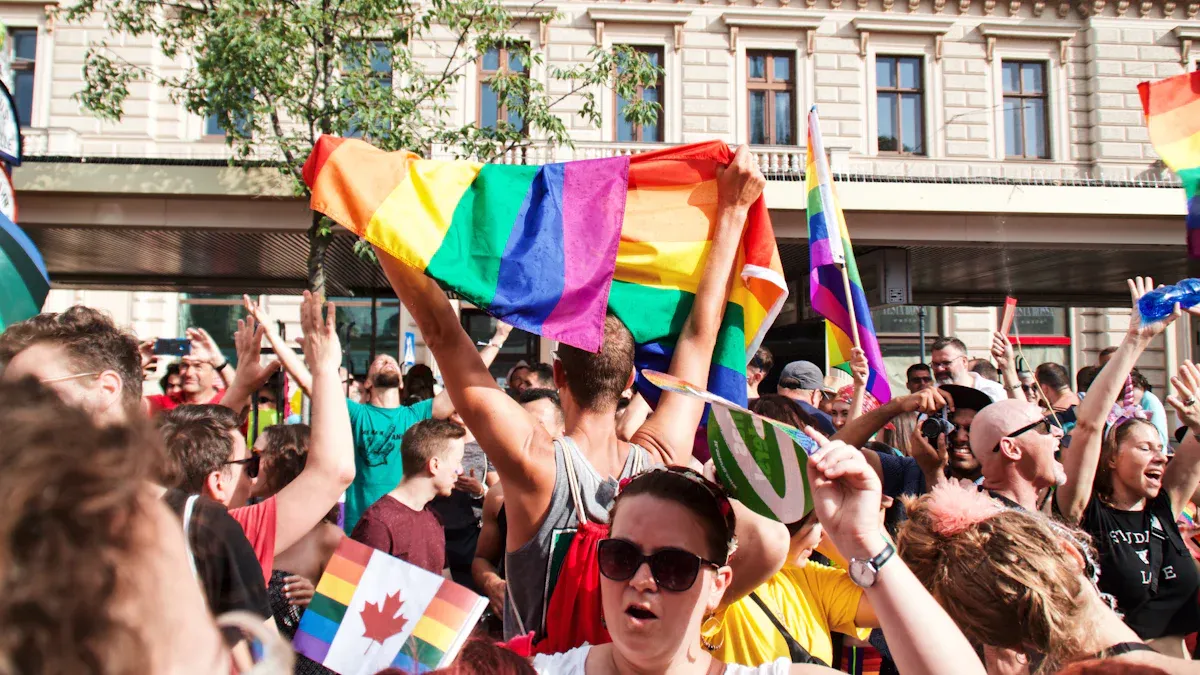
Identity Signals
Symbols have always helped you find your place in the gay community. Long before the rainbow flag, people used secret signals to show who they were. In early 20th-century England, you might have seen men wearing green carnations or lavender. These colors and flowers acted like a secret handshake. Only those in the know understood their meaning. You could spot a friend or ally in a crowd, even when it was risky to be open.
Today, the rainbow flag stands out as the most famous symbol. You see it at Pride events, on clothing, and in social media profiles. The rainbow flag tells others you belong and that you support each other. Young people use rainbow bracelets or pins to start conversations and make new friends. These symbols help you feel safe and proud, even if you are meeting someone for the first time.
Note: Wearing a rainbow or using other symbols can spark supportive talks and help you build healthy friendships.
Here’s a quick look at some identity signals:
|
Symbol |
What It Means |
How It Helps You Connect |
|---|---|---|
|
Green Carnation |
Secret sign of being gay |
Find friends in tough times |
|
Lavender |
Hidden code for gay identity |
Build trust and community |
|
Rainbow Flag |
Pride and belonging |
Create safe spaces and support |
Diverse Friendships
Friendships in the gay community are not limited to just other gay men. You can form strong bonds with straight men too. In the past, fear and myths about masculinity made these friendships hard. Some straight men worried about being judged or misunderstood. Times have changed, and more people accept each other now. When you share your story and stay open, you help break down old barriers.
You might notice that honest talks about feelings and life make these friendships stronger. Gay men often give trusted advice, especially about dating. You can be a great wingman or a supportive friend. These friendships help both sides grow and heal. Even though some challenges remain, especially in places where people are less accepting, you can still find rewarding connections.
-
Early sharing of your identity builds trust.
-
Openness about feelings and respect for differences make friendships last.
-
Supporting each other in social situations helps everyone feel included.
Tip: Don’t be afraid to reach out to straight friends. You can learn from each other and build a diverse support network.
You can make strong friendships with other gay men. Set clear boundaries and talk openly with your friends. Doing things together and using community symbols help you feel close and supported. Here are some tips for good friendships:
-
Value platonic bonds for support and fun.
-
Use humor and honesty to fix problems.
-
Stay active in the gay community to enjoy friendships more.
-
Respect each other’s feelings and needs.
When you are open and kind, you build friendships that help you do well.
FAQ
How do you handle attraction in a gay friendship?
You can talk about your feelings honestly. If you feel attracted to a friend, share it in a safe way. Set clear boundaries together. Respect each other’s wishes. This helps you keep your friendship strong and comfortable.
Can gay men stay just friends without romance?
Yes, you can! Many gay men have close, platonic friendships. You build trust by being honest and respecting each other’s limits. Focus on shared interests and support. Friendship does not always lead to romance.
What if you feel left out in gay social groups?
You might feel left out sometimes. Try joining new groups or activities that match your interests. Reach out to someone friendly. Remember, everyone feels nervous at first. You belong, and you can find your people.
How do you make new gay friends outside of dating apps?
You can join clubs, sports teams, or volunteer groups. Attend LGBTQ+ events or try online forums for friendship. Start with a simple hello. Shared activities help you meet people who want real connections.
